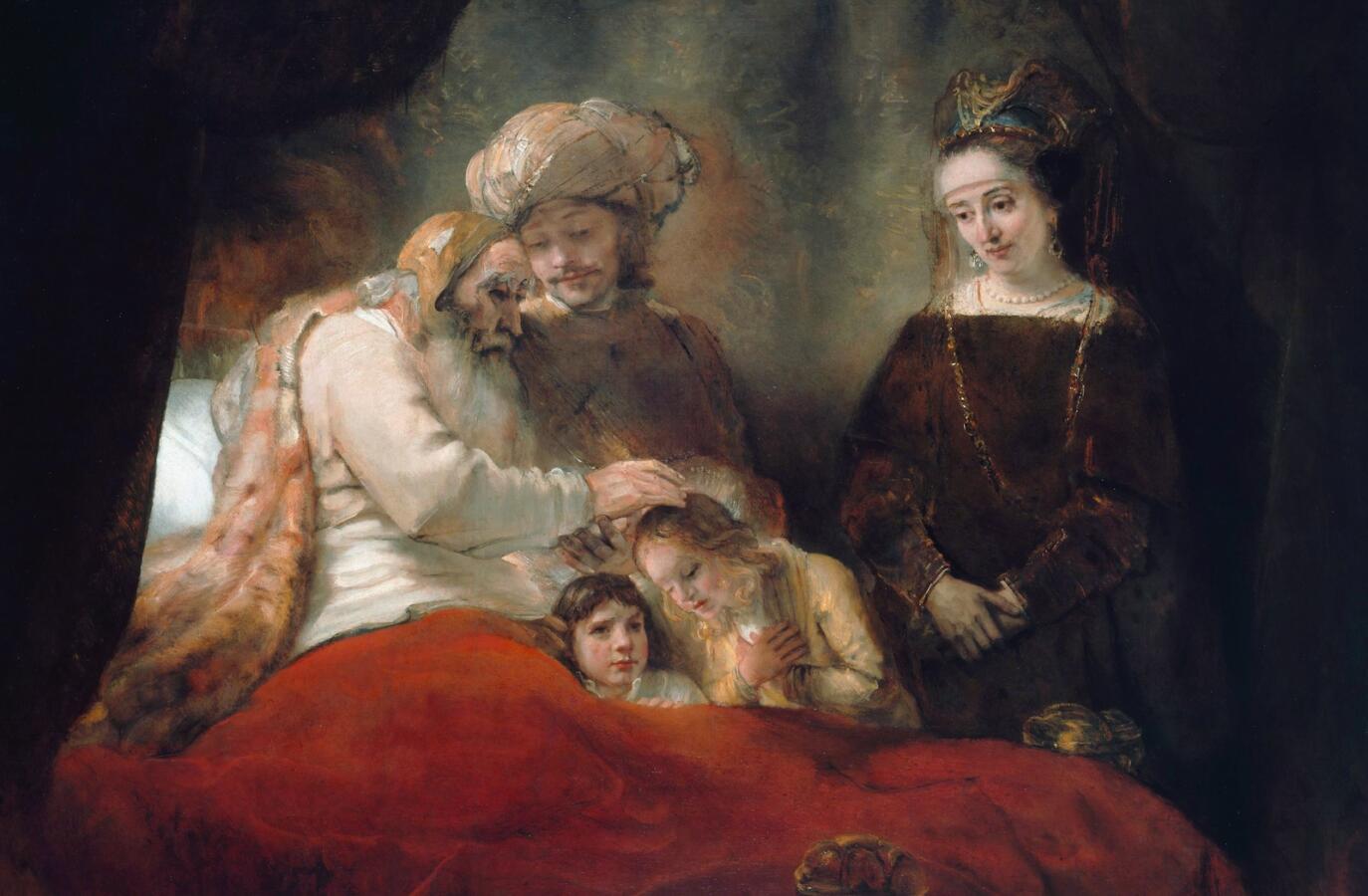“Be careful,” my mother would laugh if I teased her. “I might come back and haunt you.”
This week marks ten years since my mother’s death and the haunting is sweet. I often feel her close, especially at this time of year, in the passage of short days and long nights, in the outbreath of Christmas and the crisp anticipation of a new year.
My mother’s death also reverberates in this week’s Torah portion, in which we find Joseph and his brothers gathered at the bed of their father Jacob, our complicated patriarch, to witness him breathe his last.
The scene is an especially tender one. After offering his sons rather mixed blessings, prophesying the troubles and troubling traits of their descendants, the text says this: “Jacob gathered his feet into the bed; he expired and was gathered to his people.” (Genesis 49:33)
With your help, My Jewish Learning can provide endless opportunities for learning, connection and discovery.
This language catches me every time — the repetition of “gathering,” the sons, the feet, and the life. In this verse is a suggestion that for the lucky among us, dying might be as easeful as drawing our feet into bed. And that beyond the doorway there is a hint of reunion with our people. This grace is offered to some but not all of our forebears. Abraham is similarly gathered to his people, as are Isaac and Ishmael. Sarah and Joseph, in contrast, simply “die.” Rachel’s death in childbirth is a painful tear-jerker. And the deaths of Rebecca and Leah are simply not recorded.
As I reread Jacob’s deathbed scene, I feel a special empathy for Joseph, both of us having spent decades far from a beloved parent only to have them unexpectedly near at the close of the story. In Joseph’s case, Jacob is at last close by in Goshen, the Egyptian outskirts. In my case, my mother was visiting me in California for her 85th birthday when she had a stroke. She endured for five weeks, enough time to have, like Jacob, countless bedside gatherings before she too was gathered.
What is this gathering? And to whom exactly are we gathered? The Torah uses the word am, meaning “people” or “nation,” rather than avot, meaning “ancestors.” Just a few verses earlier (Genesis 49:29), Jacob uses both, saying, “I am being gathered to my people (ami); bury me with my ancestors (avotai),” suggesting that those words do not mean the same thing. Maybe ancestors are individuals, bound by their biographies; they are the past. The people, the am, might be something larger and more collective — the unfolding of our shared story over time; they are the future.
In this sense, Jacob might be buried with Abraham and Sarah, but it is to us that he is gathered. We are the am, still in forward motion. We continue his story. We even go by his symbolic God-wrestling name, Yisrael. Jacob has been gathered into us — his ambitions, his destiny, his fears, his grief, his limitations.
I can say with certainty that my mother has been gathered into me. Sometimes I hear my own laugh and think she is doing the laughing. Or I scrunch my face just so and, without looking in a mirror, I know the expression to be hers. In a moment of insecurity or aggravation I can feel her insecurity and aggravation rise in my gut. Yet even as I notice these things, I know my mother did not invent them. Her laugh, her expressions, her insecurities — those were in turn gathered into her by generations previous.
We carry the ancestors in us. We carry them in a vast mosaic of talents and traits and traumas. From our mothers’ delights and fears all the way back to Jacob dreaming of a ladder, wrestling angels, snookering his brother and getting snookered in return, losing a favorite child and regaining him against all odds. And in between Jacob and us? Countless generations of seeking and suffering.
In these last months, I have noticed the ancestors in me more than ever. I have felt a rising fear and quick reactivity honed over centuries of brutal European persecution. I have felt it in me and I have seen it in others. These ancestors, survivors of massacres and pogroms and the Holocaust and who knows what else, are gathered into me. Their fears and their survival tactics are in my cells and they are all reignited.
I breathe in their experience. I honor the reflexes their legacy gives me. But I am not bound to act from the place of their trauma. I get to choose. One day I will be gathered to my people, and I am answerable for the legacy I leave. What hope or despair, skill or brutishness, openness of heart or resilience of spirit, will be gathered from me into those who come after?
Let us give them the best we have. We have it in us to replace ancestral trauma with ancestral hope and wholeness. Let us do this as a healing, a tikkun, on their behalf. So that after we have drawn our own feet into the bed, we might make all the generations, past and future, proud.
This article initially appeared in My Jewish Learning’s Shabbat newsletter Recharge on Dec. 30, 2023. To sign up to receive Recharge each week in your inbox, click here.



